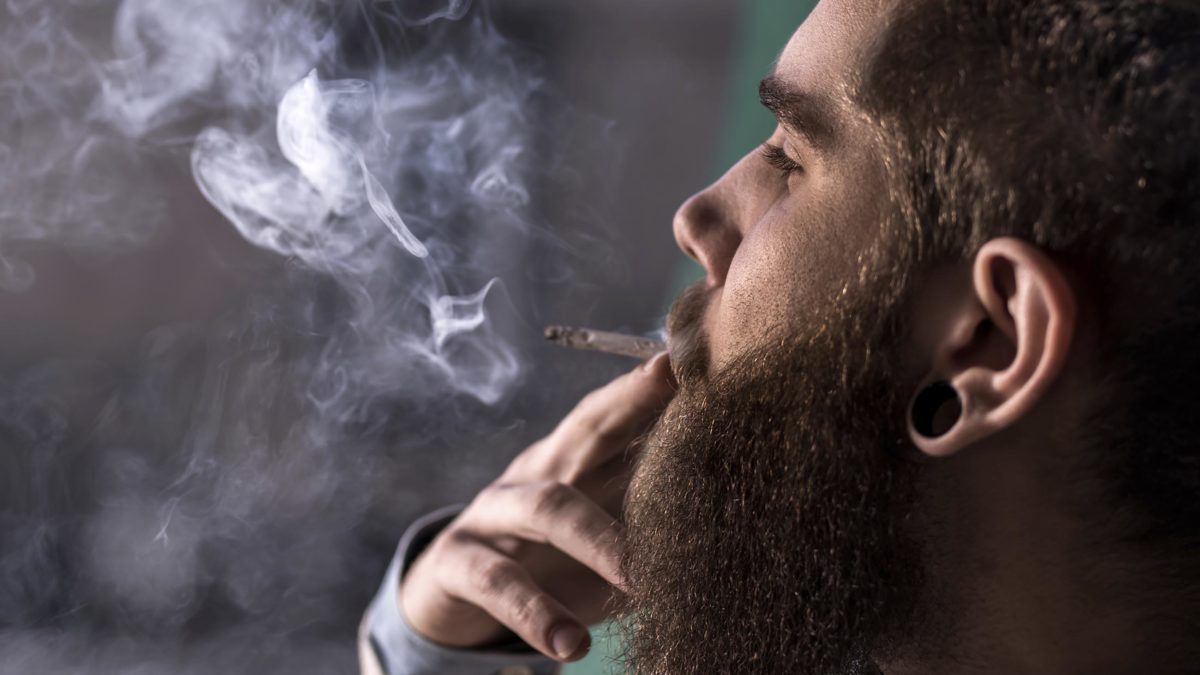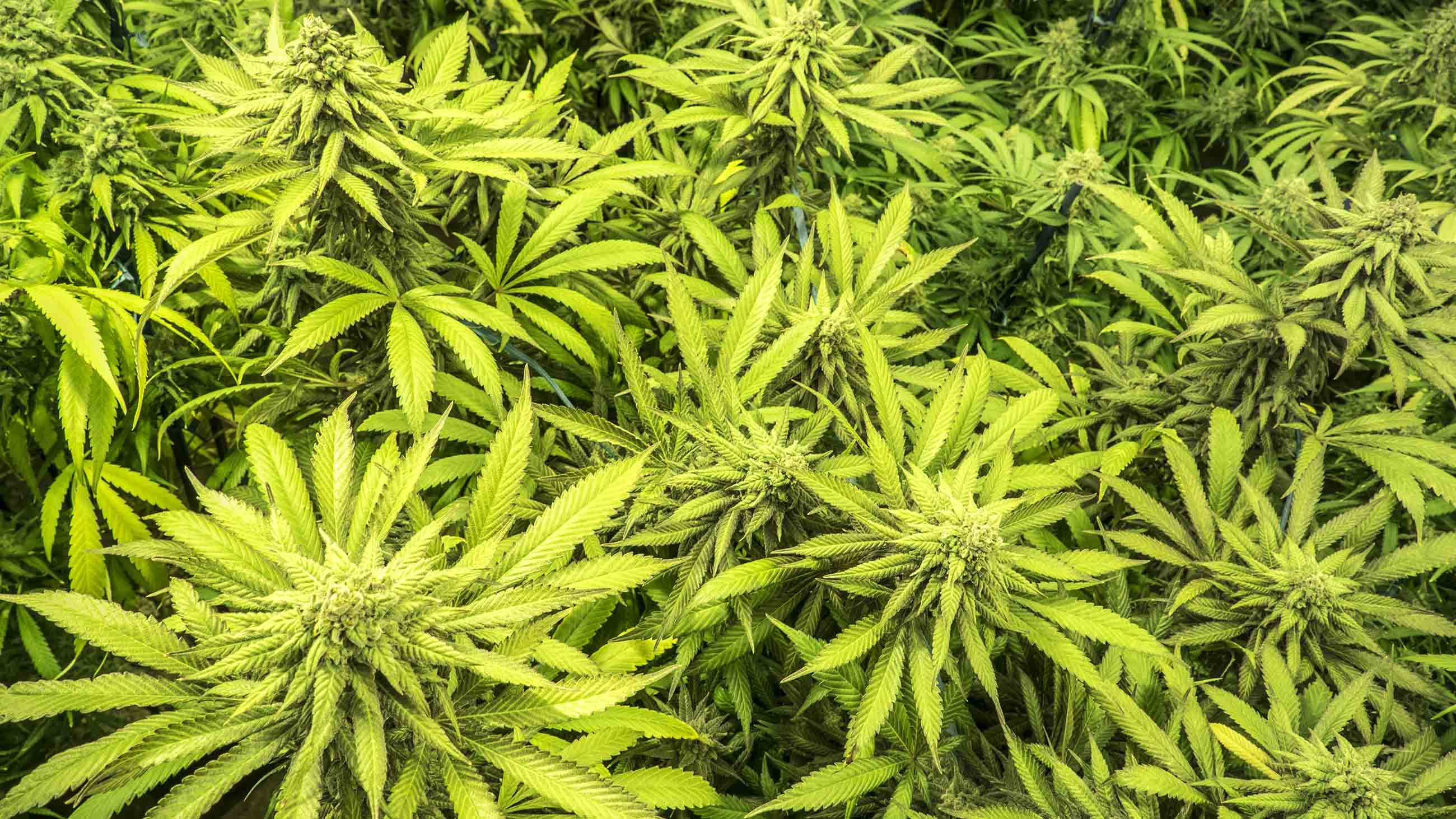The Marijuana Vote: Legalize First, Ask Questions Later?
Voters in Arizona, California, Maine, Massachusetts, and Nevada are going to the polls today to consider — among other pressing choices — whether or not to legalize marijuana for recreational use. Four other states — Arkansas, Florida, Montana, and North Dakota — are weighing legalization for medical purposes.

Even in a legal market, it’s very hard to know what you’re getting in that toke.
Visual: iStock.com
But while the unprecedented accumulation of marijuana-related ballot initiatives has been heralded as a victory by the pro-cannabis crowd, public health experts worry that legalization is outpacing regulators’ ability to ensure some measure of uniformity and safety for consumers planning to take part in a newly liberated market.
To date, 21 states allow marijuana use for medical purposes, and four more, along with Washington D.C., have legalized it for both medical and recreational use.
The problem, experts say, is that the marijuana currently sold in dispensaries across the country is inconsistent in its strength and chemical makeup. It also has very little regulatory oversight, and has received little scientific validation of its dosing or ingredients. This poses a public health challenge: If marijuana buds, extracts, and edibles aren’t scrutinized with standardized laboratory procedures, consumers can’t know what they’re taking. And to the extent that they experience any health improvements — or deteriorations — it will be impossible to know what dose or chemical component is responsible.
This isn’t just a problem with marijuana sold for recreational use, says Ryan Vandrey, a professor of psychiatry and behavioral sciences at Johns Hopkins University who studies cannabis. Marijuana sold for medical use is wildly variable, too.
“Even though it’s been legislatively approved as a medicine in certain areas, the products that are being sold don’t meet the standards that we as researchers require in terms of manufacturing, characterization, and requirements for dosing,” says Vandrey. “Their sampling and testing procedures aren’t validated anywhere.”
There have been calls for improved marijuana testing, and studies have pointed to potential issues of contamination with bacteria and pesticides, as well as the fact that the drug’s potency appears to be rising. To address these concerns, states like Washington, Colorado, and Oregon have begun opening cannabis testing facilities, but laboratory testing and herbal product interest groups like the Cannabis Safety Institute and the American Herbal Products Association, which have issued recommendations on what testing should look like, have highlighted a variety of scientific shortfalls at these new labs.
“You’ve got to have that sophistication come into the [marijuana industry’s] analytical laboratory community,” says Jane Wilson, director of program development for the American Herbal Products Association. Wilson says that a variety of different regulatory models are taking shape, and that some states are starting to require that marijuana testing facilities get formal accreditation under the International Standards Organization. But oversight, she said, still lags legalization. “We hoped the regulations would be in front of it, but we’re a bit behind.”
Jason Ngan, who runs the business development and sales team for ProVerde Laboratories, a marijuana testing facility in Milford, Massachusetts, says that his operation is safe and compliant. “We follow whatever the [Massachusetts] Department of Public Health puts in place,” Ngan says. “They are the board that governs medical marijuana [and] we are assuring that the medicine being distributed to patients in the state of Massachusetts is safe.”
To what extent that’s true among the ever-expanding network of marijuana dispensaries and testing labs across the U.S. is impossible to know, but one thing seems certain: As marijuana legalization becomes increasingly common at the state level, the next legislative battles will likely coalesce around how to bring baseline standards to the drug’s chemistry and potency. As it stands, Vandrey says, consumers are too often left in the dark as to what’s in any given strain or variety.
“‘O.G. Kush’ doesn’t mean anything in terms of the chemical components of the plant,” he says. “It’s marketing. Anybody can call what they have ‘O.G. Kush.’ There’s no standard to meet.”











Comments are automatically closed one year after article publication. Archived comments are below.
Everyone keep in mind that pot is a crop that has nothing to do with our industrial type of growing. Just like some vegetables don’t all look the same or the farmer has a great crop or a lousy crop it changes all the time. Don’t pretend that cannibis is any different. Also it would be nice to get some real studies done w/out any kind of input from any gov’t agency. Despite what many hear the industry is under illegal attack from the MED who makes it clear they want an end to anyone but billionaires in the business depriving thousands of Americans a chance maybe their last chance to strike it rich.